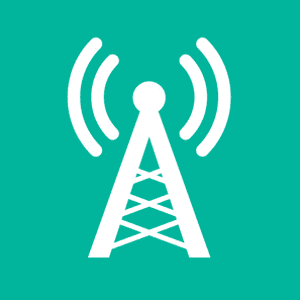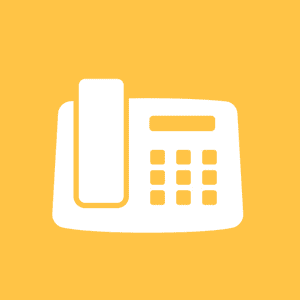Business Phone Service in Hawaii
MyRatePlan is great for comparing business phone service providers in Hawaii. Business owners understand the importance of being able to send and receive calls, and they need a reliable service to keep in contact with customers. Although the Internet is regularly used for communication purposes, the telephone is still the main form of communication, and businesses should have a phone service that is reliable, affordable and effective. Before choosing a suitable provider, many considerations must be made, and the provider must be carefully considered. In the modern world, there are two main options available to business owners, and these are VoIP and analog phone services. When comparing and searching for the best provider, it's useful to understand the differences between VoIP and analog phone services.
| Provider | Plan Details | Monthly Rate* | |
|---|---|---|---|
 |
RATED #1 BY INDUSTRY EXPERTS
|
$19.99
|
Details

142 Reviews |
 |
Business phone service - no internet required
* 8.3% discount if paid for the year upfront |
$17.41*
|
Details

7 Reviews |
 |
Engineering for the Small Business
* per user per month |
$9.95*
|
Details

1 Reviews |
 |
Alliance Phone Service
* 12% discount for subscribing and paying for a year upfront |
$19.97*
|
Details

13 Reviews |
_4.png&contenttype=png) |
The phone system built to do business anywhere
* $5 per additional user |
$19.00*
|
Details

1 Reviews |
_2.png&contenttype=png) |
Get 99.99% network reliability with Fios.
* Per month. Plus taxes, fees and equipment charges. |
$69.00*
|
Details

11 Reviews |

What is Hawaii Business VoIP Phone Service?
An alternative to traditional landline service, VoIP has become increasingly popular with new businesses as well as older companies that switch after realizing how VoIP can increase productivity and reduce operating costs. Although the technology is over ten years old now, it initially suffered from poor call quality due to limits in broadband technology. That issue is no longer a concern due to the widespread deployment of superior broadband networks, and adaptation of VoIP is expanding rapidly. VoIP now offers the same call quality as analog phone service while providing more features at a better price. VoIP works by sending voice calls over the internet rather than through traditional analog telephone lines, so it is important that you have a fast and reliable business internet connection available. To see if your internet connection in Hawaii will support VoIP service, use the MyRatePlan internet speed test.
PSTN refers to traditional landline service, where voice calls sent through analog lines are routed through switches to other telephones. VoIP works differently, by turning voice calls into packets of data and transferring them over high-speed broadband lines. Transmitting voice calls over the internet costs less since analog lines are archaic and require constant maintenance, while broadband lines are already in use to provide internet service and the network is continually expanding and improving. Since PSTN service infrastructure is more expensive to maintain than broadband, analog telephone providers must charge for services and features that are often free with a VoIP plan. VoIP customers typically spend much less on features such as long distance than PSTN users and are not charged by the minute.
VoIP service providers offer plans tailored to businesses of all sizes and provide essential features like voicemail and call waiting, as well as advanced productivity features including automated line attendants and remote access. Whether your business needs a few lines or you need several thousand, VoIP providers in Hawaii can meet your requirements and help to increase the efficiency and profitability of your business.

Picking The Best Phone Service for Your Hawaii Business
Due to the rising popularity of commercial VoIP, you will find there are a lot of providers eager to nab your business. Even though this could complicate the selection process, it can also be a useful advantage.
To begin, give some thought to your company's communication needs. Try to determine things like which functions you'll need to use during the day, how many extensions you'll need to buy, whether you have plans to develop your organization further in the foreseeable future, and what your phone budget looks like.
Then you'll be prepared to check on the plans available from the myriad of company VoIP providers in Hawaii. Take note of the packages they have available, their costs, and also the all-around trustworthiness of the provider. Using a functional phone service is an indispensable component in your business's success, so it's important to choose a provider with a favorable reputation for stability and fine customer support.

What is Traditional Business Phone Service in Hawaii?
Traditional phone service companies transmit their signals through a PSTN. The PSTN uses circuit-switched telephony. It is based on copper wires carrying analog voice data. Telephone services that are facilitated by PSTN are often known as Plain Old Telephone Service (POTS) because it has been operational for more than 100 years. It was the first mode of a network to be used by telephone service providers. The PSTN also comprises of satellites, mobile networks, and cables.
The PSTN infrastructure is very large. Therefore, it is expensive to use PSTN telephone service than VoIP in Hawaii. Moreover, the PSTN network is old and often requires maintenance. The major setback of PSTN telephone services is that they have difficulties when sending data over long distances because they are analog.
When making long distance calls over the PSTN, the data has to stop at different destinations during its transmission. The data flow through the equipment owned by various companies as the call is in progress. Therefore, it makes the call cost per minute higher and expensive. The traditional phone service companies use a lot of infrastructures to carry, switch, and route the calls that are now digital. However, the connection between the local central office and the customer is still analog.

Analog Private Branch Exchange Systems in Hawaii
Many businesses have PBX systems that handle calls internally. This makes it possible to send calls to different phones depending on the extension. Analog PBX systems also facilitate voice mail, forwarding, conference calls and other sophisticated functions. They are popular among businesses that have multiple staff members with separate offices. A company can put the PBX equipment in its own building or pay a separate facility to host it.
The main downside of PSTN-based PBX systems in Hawaii is that they cost considerable amounts of money. Most companies spend $1,000 or more when they buy the equipment. It can also be costly to set up this system and conduct the necessary maintenance. Some firms have employees with the appropriate expertise to perform these tasks. Others need to pay contractors who charge at least $100 per hour.
It often proves costly to upgrade analog PBX hardware. This may become necessary if a company hires more staff members or desires the latest technology. Most systems cap the number of extensions. Consequently, businesses must pay for expensive new equipment when they want to connect additional phones. Upgrades are sometimes complex, so installers need to have extensive technical expertise.
Private branch exchange systems occasionally malfunction or fail as they age. This can result in significant expenses when technicians need to replace or fix the equipment. Technical difficulties may also disrupt communications from time to time. Many of the above-mentioned problems can be avoided when companies opt to use business VoIP services instead of analog PBX systems.
Find Business Phone Service Providers in
- Honolulu, HI
- Ookala, HI
- Pearl City, HI
- Hoolehua, HI
- Kapaa, HI
- Kurtistown, HI
- Waimanalo, HI
- Maunaloa, HI
- Kealakekua, HI
- Laie, HI
- Pahoa, HI
- Hanalei, HI
- Waialua, HI
- Lihue, HI
- Papaikou, HI
- Hauula, HI
- Waikoloa, HI
- Ocean View, HI
- Volcano, HI
- Aiea, HI
- Kalaheo, HI
- Mountain View, HI
- Hakalau, HI
- Pukalani, HI
- Schofield Barracks, HI
- Kunia, HI
- Kapaau, HI
- Kahuku, HI
- Ewa Beach, HI
- Laupahoehoe, HI
- Hilo, HI
- Pahala, HI
- Ninole, HI
- Kekaha, HI
- M C B H Kaneohe Bay, HI
- Puunene, HI
- Kaneohe, HI
- Waipahu, HI
- Wailuku, HI
- Makaweli, HI
- Honomu, HI
- Captain Cook, HI
- Lahaina, HI
- Hanapepe, HI
- Hana, HI
- Kula, HI
- Keaau, HI
- Tripler Army Medical Center, HI
- Papaaloa, HI
- Kailua Kona, HI
- Kailua, HI
- Haiku, HI
- Lawai, HI
- Honaunau, HI
- Wheeler Army Airfield, HI
- Kualapuu, HI
- Kilauea, HI
- Kaaawa, HI
- Princeville, HI
- Kaumakani, HI
- Hawi, HI
- Paauilo, HI
- Naalehu, HI
- Kealia, HI
- Wahiawa, HI
- Lanai City, HI
- Kamuela, HI
- Waimea, HI
- Waianae, HI
- Makawao, HI
- Eleele, HI
- Pepeekeo, HI
- Paia, HI
- Hanamaulu, HI
- Haleiwa, HI
- Mililani, HI
- Camp H M Smith, HI
- Anahola, HI
- J B P H H, HI
- Keauhou, HI
- Kahului, HI
- Kapolei, HI
- Honokaa, HI
- Fort Shafter, HI
- Hawaii National Park, HI
- Koloa, HI
- Kihei, HI
- Wake Island, HI
- Kaunakakai, HI
- Holualoa, HI
- Kalaupapa, HI


 Menu
Menu